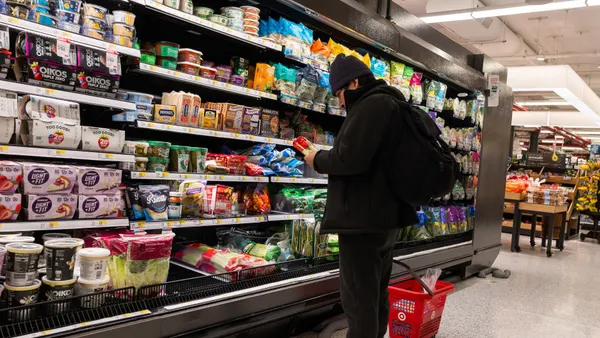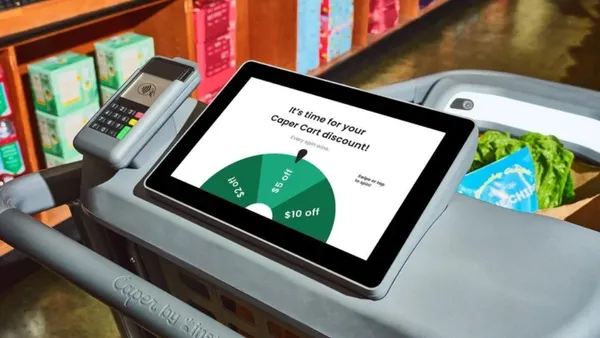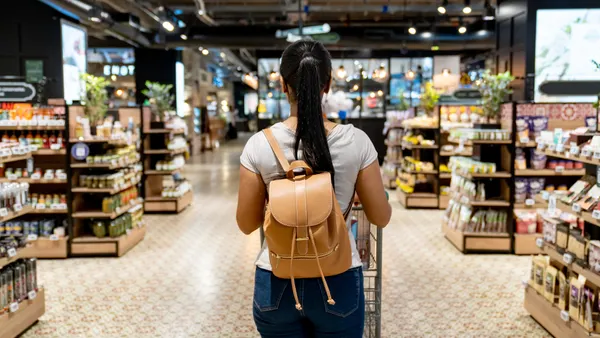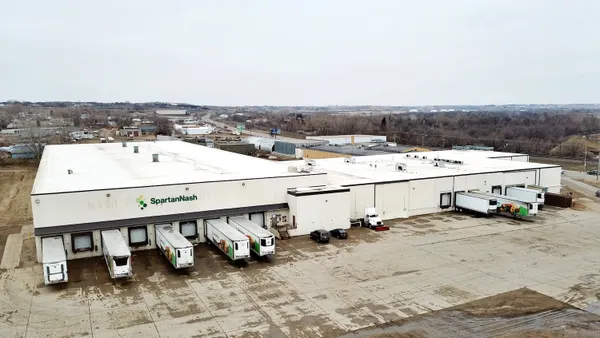Highlights
Founders:
Dave Ferguson and Jiajun Zhu
Founded:
2016
Outlook:
As the first autonomous delivery startup to partner with a retailer, Nuro has sparked a trend where driverless vehicles are likely to become the main source of deliveries in the future.
Nuro, a startup founded by two ex-Google engineers, made waves this summer after it partnered with Kroger to offer the first autonomous delivery vehicle for the grocery industry. The startup has sparked a trend and given the industry a taste of what’s to come in the fast-evolving e-commerce channel.
The pilot, currently underway at a Fry's Food and Drug store in Scottsdale, Arizona, offers same-day delivery to customers through its Grocery Pickup service for a flat $5.95 fee. Shoppers place their order, and when the vehicle shows up they punch in a special code to unlock the doors and retrieve their bags. The innovation is aimed at boosting efficiency and bringing down last-mile costs. According to a Barclays report, 80% of grocery delivery costs are associated with labor expenses and wages.
"Americans alone spend 60,000 lifetimes every year on trips for shopping and other errands. So, we created a self-driving vehicle made especially for delivery to give people more time to spend doing the things they love."

Dave Ferguson
Co-founder, Nuro
"We identified self-driving delivery for local commerce as a major opportunity to accomplish that mission," wrote Dave Ferguson, co-founder of Nuro, in an email to Grocery Dive. "Americans alone spend 60,000 lifetimes every year on trips for shopping and other errands. So, we created a self-driving vehicle made especially for delivery to give people more time to spend doing the things they love."
For Kroger, the pilot is one of many steps taken recently to boost its online footprint and position its services for the future. The nation’s largest grocer has also launched a dedicated online marketplace, partnered with Alibaba on private label sales and signed a deal with e-grocer Ocado to build automated fulfillment warehouses across the country.
But other grocers are catching on and have announced their own autonomous delivery pilots. Walmart has its own driverless pilot in Arizona that ferries customers to and from its Chandler store to pick up their grocery orders. The company also recently partnered with Ford and Postmates to test driverless delivery in Miami, while driverless company Udelv partnered with Farmstead in the Bay area and with Buy for Less stores in Oklahoma City to deliver orders to shoppers.
There are benefits to driverless delivery besides the obvious. The service can also boost road safety, create new tech jobs and reduce pollution and congestion, according to the Nuro. Nuro's vehicles are fully electric and batch together orders to make the most efficient routes possible.
However, along with these positives, Nuro does face challenges. The vehicles travel at about 25 to 35 miles per hour, making speed and viability on highways and interstates a question mark. There are also consumer concerns that driverless cars and other automated technologies will replace human workers. But Nuro says it actually creates jobs by giving any business, including Kroger, the opportunity to offer home delivery at a competitive price.
Although Nuro, Kroger and other driverless delivery pilots are still in the very early stages, the technology carries the promise of lower costs, lower prices for consumers and better service. For its part, Nuro hopes to partner with other grocery companies and eventually become to the largest provider of autonomous grocery delivery vehicles in the industry.
"We're very excited about further developing the partnership with Kroger, especially given their scale and innovation leadership in the grocery industry," said Ferguson. "That said, we've had interest from others retailers, and expect that we will continue to grow our partnerships as we expand as a company and service."
Read More
-
Kroger launches driverless delivery in Scottsdale, Arizona
By Krishna • Aug. 16, 2018 -
Kroger's driverless delivery test underscores a focus on the future
By Jeff Wells • Aug. 29, 2018














